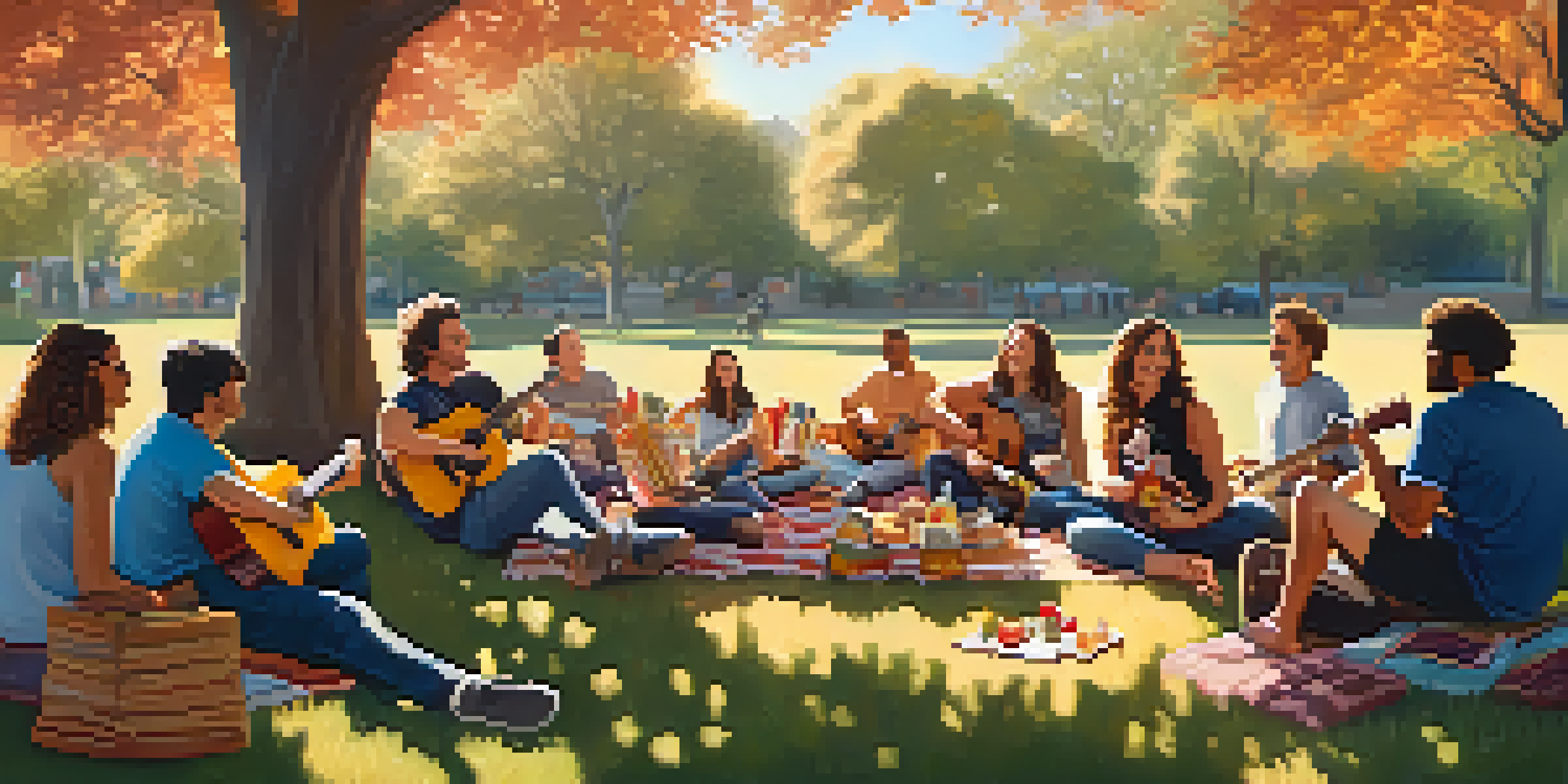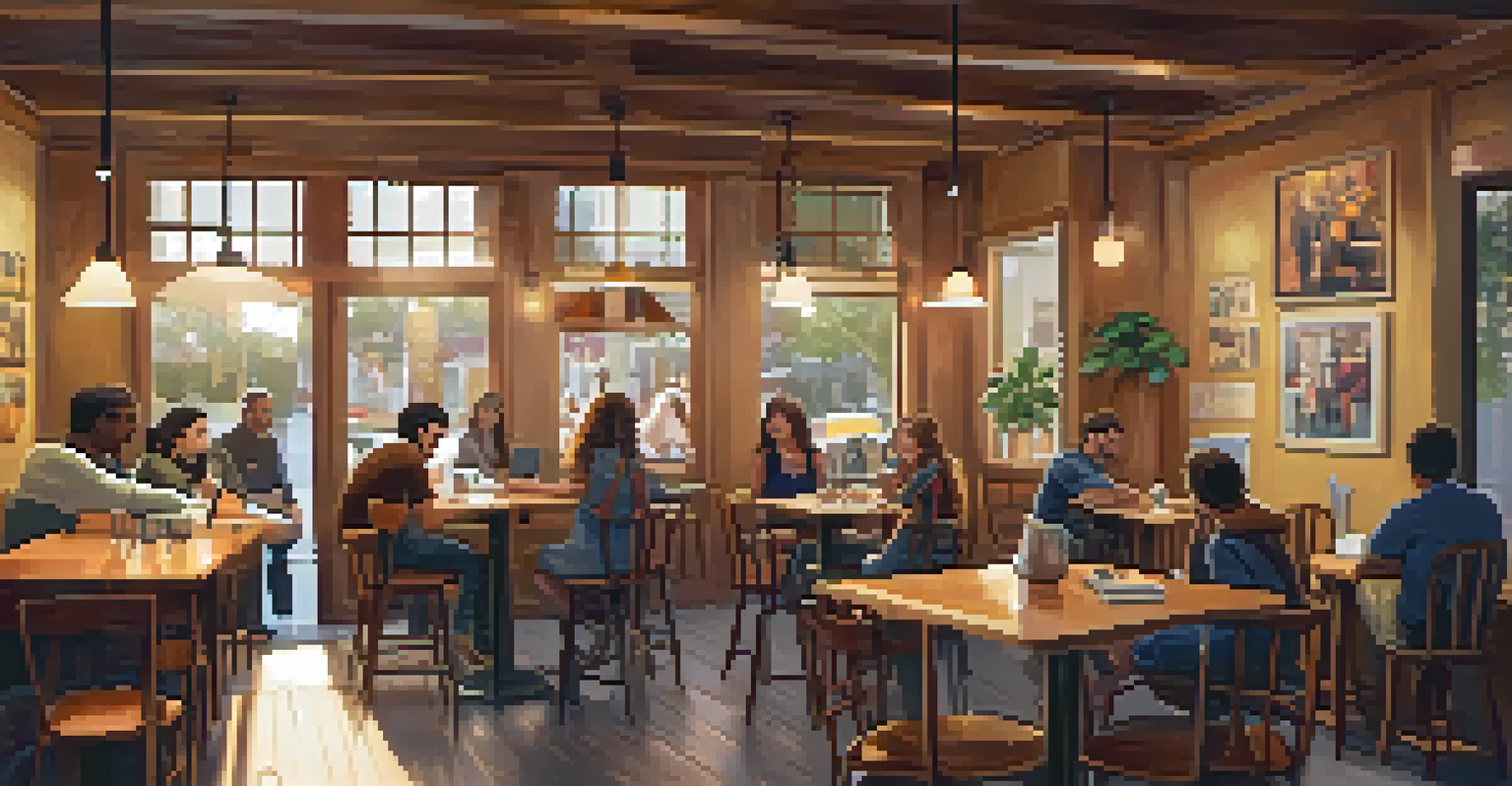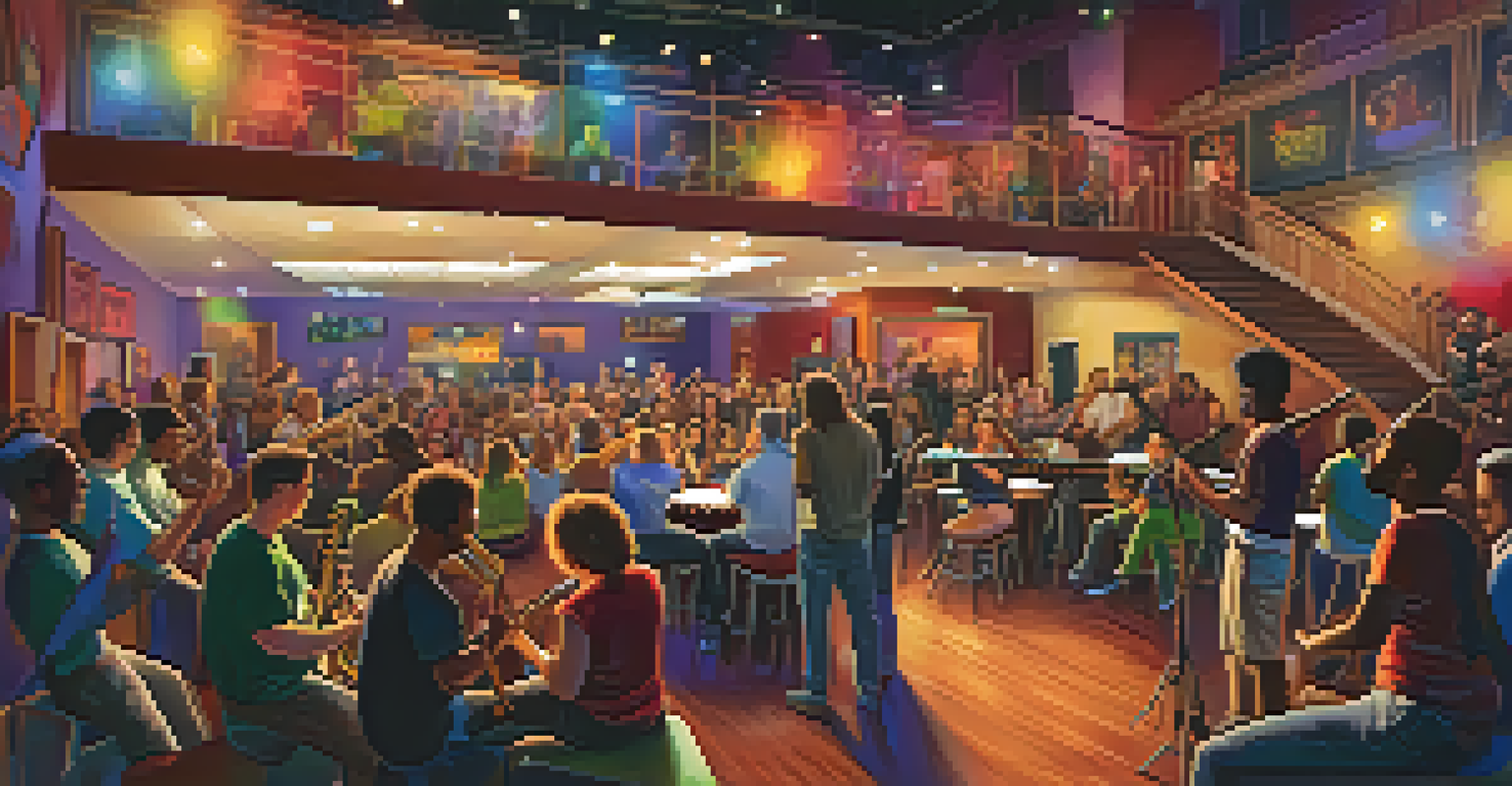Building a Local Guitar Community Through Meetups and Jam Sessions

The Importance of Community in Music
Music has a unique ability to connect people, and the guitar is no exception. When guitarists come together, they create a shared experience that goes beyond just playing notes. This sense of community can foster creativity, provide support, and offer valuable networking opportunities.
Music brings people together, and that’s what makes it special.
Imagine a group of guitarists sitting around, sharing their favorite riffs and techniques. It’s not just about improving skills; it’s about building friendships that can last a lifetime. These connections can also lead to collaborations, new projects, or even just a reliable buddy to jam with.
Creating a community is essential for personal growth as a musician. Whether you’re a beginner or a seasoned player, engaging with others can inspire you to explore new genres, learn different styles, and push your musical boundaries.
Organizing Your First Meetup
Starting a local guitar meetup can be as simple as gathering a few friends or posting on social media. Choose a comfortable venue, like a local café or park, where everyone can relax and enjoy the music. Set a date and time that works for most people, and promote it through social media or community boards.

Consider what type of meetup you want to host. Will it be a casual jam session, a lesson exchange, or a themed night focusing on a particular genre? Whatever you choose, the key is to create an inviting atmosphere where everyone feels welcome to participate.
Community Sparks Musical Growth
Connecting with fellow musicians fosters creativity and personal growth, enhancing skills and building friendships.
Don’t forget to prepare some icebreakers or activities to help attendees connect. A simple ‘show and tell’ of favorite songs or techniques can spark conversations and get everyone engaged right from the start.
Creating a Welcoming Atmosphere
A welcoming atmosphere is crucial for any meetup to thrive. Encourage everyone to bring their guitars and any other instruments they play, making it feel like a collaborative space. Remind participants that all skill levels are welcome, so no one feels intimidated.
The joy of music should never be forgotten, for it is the heartbeat of our shared experiences.
Consider incorporating refreshments or snacks to help break the ice. A relaxed setting with food and drinks can ease nerves and encourage conversation among players. Plus, who doesn’t appreciate a good snack while jamming?
You might even want to establish a few ground rules to keep the vibe positive. For example, promote respectful listening and constructive feedback, ensuring everyone feels valued and heard during the session.
Incorporating Jam Sessions
Jam sessions are a fantastic way to bring guitarists together and create spontaneous music magic. These informal gatherings allow players to experiment, improvise, and collaborate in a low-pressure environment. Encourage participants to bring their favorite songs and be open to trying out new styles.
To get started, have a few popular songs ready that everyone might know. This can serve as a foundation for the jam and help get everyone involved quickly. As the session progresses, encourage players to take turns leading and sharing their own music.
Host Inviting Meetups for All
Organizing welcoming meetups encourages participation and creates a collaborative environment for musicians of all levels.
Remember, the goal of a jam session is to have fun and learn from each other. It’s all about the joy of making music together, so keep the atmosphere light-hearted and supportive!
Leveraging Online Platforms
In today's digital age, online platforms can significantly enhance your local guitar community. Social media groups or dedicated forums can serve as a hub for musicians to share ideas, post events, and connect with one another. Consider creating a Facebook group or using Meetup.com to organize events and discussions.
Online platforms also allow you to reach a broader audience. You can invite not just your friends but also fellow musicians from nearby towns. This can lead to larger gatherings and diverse musical influences that enrich the local scene.
Additionally, sharing videos or recordings from your meetups online can attract new members. Showing potential participants what they can expect may encourage them to join in on the fun.
Inviting Guest Musicians and Teachers
One way to elevate your local guitar meetups is by inviting guest musicians or teachers to participate. This can bring a fresh perspective and provide valuable insights to attendees. A guest musician can lead a workshop, offer a mini-concert, or simply share their experiences.
Guest musicians can also help to draw in new attendees who may be curious about their style or expertise. This can expand your community and enrich the learning experience for all involved. People love to learn from those who have walked the path they aspire to take.
Celebrate Achievements Together
Recognizing the accomplishments of your community strengthens bonds and motivates members to engage and improve.
Consider reaching out to local music schools, colleges, or even prominent local musicians to see if they would be interested in contributing. Their involvement can inspire attendees and create a buzz around your meetups.
Celebrating Your Community's Achievements
As your local guitar community grows, it’s essential to celebrate its achievements. Whether it’s hosting a mini-concert showcasing members’ talents or organizing a community jam night, acknowledging progress fosters a sense of belonging. It also motivates participants to keep improving and engaging with each other.
You might consider starting a monthly newsletter to highlight members’ successes, upcoming events, and featured songs. This keeps everyone informed and excited about what’s happening in the community.

Celebrating milestones, no matter how small, can significantly enhance the camaraderie within your group. It’s a reminder that everyone’s journey in music is unique and worth sharing.